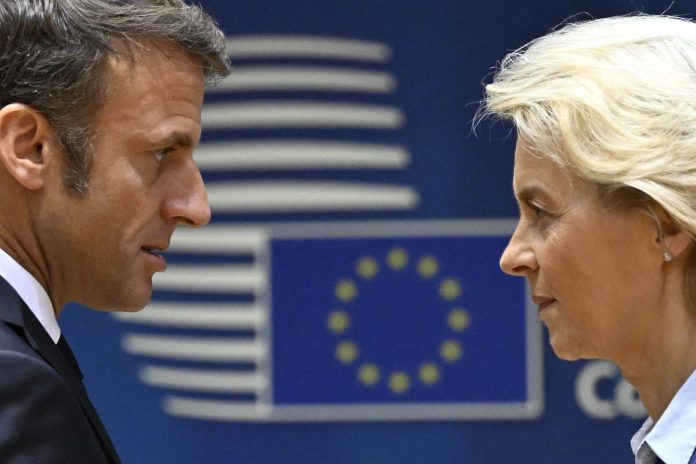EU leaders will gather for a summit on Thursday to discuss a range of issues, including continued support for Ukraine and the unfolding situation in the Middle East.
The two-day summit in Brussels, due to start at 12 noon GMT, will also see EU leaders discuss topics as diverse as the war in Gaza, the prospect of membership talks with Bosnia and farmer protests.
The bloc and its member states have so far committed more than 138 billion euros ($149.5 billion) to Ukraine and have said they are ready to continue providing political, financial, economic, humanitarian, military and diplomatic support “as long as necessary.”
EU leaders have expressed growing alarm at the state of the war in recent weeks, with ammunition-starved Ukrainian troops struggling to contain Russian forces and a $60 billion military aid package to Kyiv stuck in the US Congress.
The European Commission, the EU’s executive body, this week proposed seizing profits from Russian assets frozen in Europe and transferring about 90 per cent to an EU-managed fund used to finance arms supplies to Kyiv.
No final decision is expected at the summit. But leaders will indicate how the EU should deal with the proposal. The summit’s draft declaration says the leaders “reviewed progress” in using the revenues “for the benefit of Ukraine, including possibly to finance military support” and asks EU bodies to “continue the work”.
The leaders are expected to discuss the thorny issue of how increased defence spending should be financed.
French President Emmanuel Macron and others have backed Estonian Prime Minister Kaja Kallas’ proposal for European defence bonds. But other countries, including fiscally cautious Germany, Austria, the Netherlands and Sweden, are sceptical.
EU leaders also called for sustained, rapid, safe and unimpeded humanitarian access and assistance to those in need in Gaza, and emphasised the need to work with partners in the region to avoid regional escalation.
According to an invitation extended by European Council President Charles Michel, the leaders will also discuss enlargement, external relations, migration, agriculture and the European Semester, the EU’s annual event to coordinate economic, fiscal, labour and social policies.
Regarding enlargement, the bloc will discuss the latest developments in Bosnia and Herzegovina, Ukraine and Moldova.
In December 2023, EU leaders approved the start of accession negotiations with Ukraine and Moldova, provided the countries fulfil all the necessary requirements. They also expressed readiness to start accession negotiations with Bosnia and Herzegovina.
On the issue of migration, EU leaders will try to address the root causes of migration and the need to strengthen external action and partnership with countries of origin and transit.
